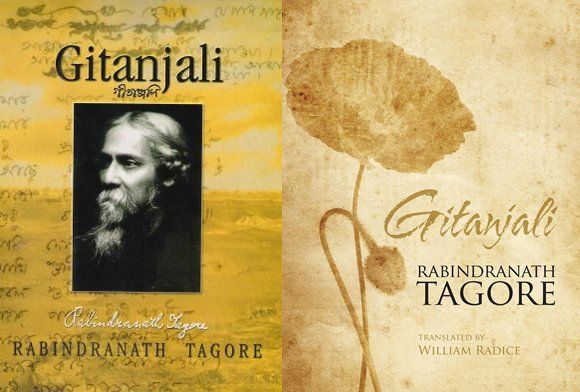A Critic's Meta Review: 4/5

Gitanjali by Rabindranath Tagore (REVIEW)
This is going to be a particularly hard one to review. Not because it was all that difficult to read, because it was not - not in the least bit. As a matter of fact, there was a period of time (about a couple of months ago, back when I was living at my last apartment in a part of town that...well let’s just say it built character) where I would, every morning, walk to the kitchen while balancing it on my head (a posture exercise my mother had recommended to me) and make a cup of tea. Then, I would read one of the numbered sections (I believe there were about a hundred), and my intention for the entire day would be set - just like that. During this time, I was probably at my happiest, as I had something to look forward to each morning.
I do not know if I would call them works of prose. Each section is like an oblation. Come to think of it, that is quite literally what they are, so there is no need to speak in such similes. It is a very personal read, so be prepared to get real introspective with it.
At night, I would read from a collection of assorted poems by Charles Bukowski as a way of balancing out the feeling that I got from reading my morning Tagore. It got me thinking about how strange it was that both men are highly revered in the world of poetry, and yet stand in such contrast with one another in terms of style and content. I have not read many poems by Charles Bukowski about the radiant beauty, the endless sense of wonder, the unrelenting gratitude that naturally arises once one devotes one’s life to serving and praising the eternal One, nor have I read too many poems by Rabindranath Tagore about whores and cheap bottles of brandy.
I’m sure they’re out there, though - perhaps scribbled somewhere in the margins of their personal journals. Who knows? Both men are long dead.
Maybe I got it all wrong, too. I can recall one fine morning when me and my roommate decided to engage in a sort of mock poetry battle between the two men, with each of us taking turns reading one from Tagore and one from Bukowski, evaluating the two poems side by side. We ended up coming to the conclusion that they were both essentially saying the same thing - that life is fleeting so make the most of it while you can - just using different imagery in order to communicate it. Tagore used the divine light, and Bukowski used the lewd darkness.
I would still love to see them arm wrestle.

